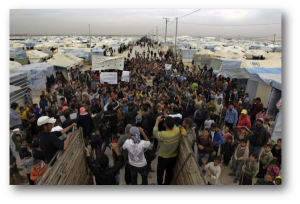 By: Harleen Kaur
By: Harleen Kaur
Today, over halfa million people have arrived in Europe after being displaced from their homes due to war and oppression. While many of these refugees head to Europe, the numbers are drastically increasing and the number of people allowed into European countries is not following. An estimated 8,000 people are allowed into Europe every day, and the number has been said to have leveled off.
Many of these refugees come from Syria, where a civil war is occurring, and some say that if the civil war does not end soon Europe will be unable to contain all the refugees. Also, it has been reported that by the end of this year about 10 million Iraqis will be in need of humanitarian support. 3.2 million have already been displaced. And as relations between Croatia, Hungary, and Serbia deteriorate due to trade wars more and more refugees have been displaced throughout Europe. Thus, refugee quotas were put into action in order to move refugees to countries based on population, GDP, unemployment, and previous asylum applications. Because many of the refugees are currently largely in Greece and Italy, leaders have been trying to move them to countries such as Germany with little success. Europe also now has to scramble in order to recognize sovereignty, quotas, border control, and cultural identity due to the facts that over ninety percent of the refugees who arrive in Europe arrived on smuggler boats crossing the Mediterranean or Aegean Sea.
After Hungary closed its borders to Serbia by finishing their razor- wire fence on September 15 Croatia has allowed refugees to enter the country. Although, this seemed victory ended shortly when the country became overwhelmed, and leaders began trying to move refugees into countries such as Slovenia and Hungary who had already taken measures to keep them out.
Overall, progress has been slow on how to accommodate the millions of the refugees coming from Asia, Europe, and Africa. Central and eastern Europe have been resisting forced quotas and border checks have been enacted in Germany, Austria, and Slovakia thus suspending the EU’s Schengen zone. Although, the issue is difficult it is obviously escalating, and Western and Eastern Europe must come to an agreement in order to provide a true solution.

